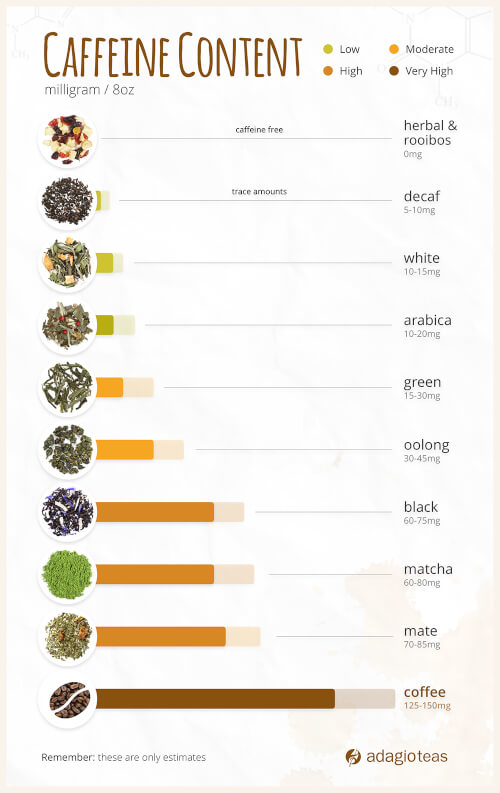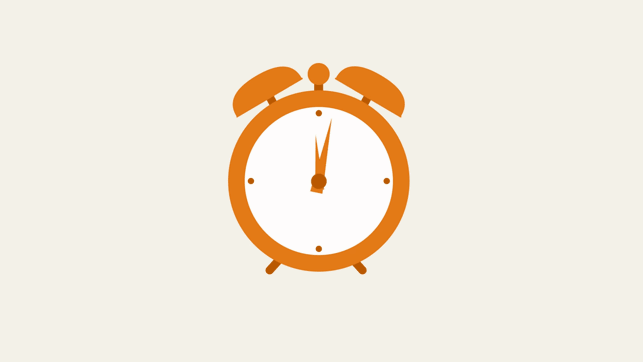Caffeine and Tea

Originally called "theine", caffeine was first discovered in tea in 1827. It was later shown that the "theine" of tea was identical with the caffeine of coffee, and the term "theine" was then dropped. While the caffeine in tea and coffee are, technically, identical, the experience is different due to three key factors:
1. There is significantly less caffeine in the average cup of tea - especially when including green and white teas, as these are brewed at shorter times and cooler temperatures.
2. L-theanine, an amino acid found only in tea, has a relaxing effect that counteracts the jitteriness of caffeine without reducing the increase in alertness.
3. The high levels of antioxidants found in tea slow the body's absorption of caffeine - resulting in a gentler increase of the chemical in the system and a longer period of alertness with no crash at the end.
The amount of caffeine in tea depends on a number of factors, including the method and length of brewing or steeping. Studies also show that leaf location on the tea plant affects content of caffeine in that tea. The youngest leaves, highest on the plant, contain the greatest concentration of caffeine AND antioxidants.
The greatest impact on caffeine content is the water temperature and length of steeping time. Black, Oolong, Green and White tea leaves themselves have surprisingly similar caffeine content. But a tea steeped for five minutes in boiling water is going to transfer a LOT more caffeine to the cup than a tea steeped for two minutes at 180 degrees Fahrenheit. Let's be clear: Oxidation does NOT increase the amount of caffeine in tea. There is no scientific basis to this common myth, and it results simply from measuring the caffeine in the cup after typical brewing methods and incorrectly crediting those results to the tea itself.
While it's difficult (and usually incorrect) to make broad factual statements about how much caffeine is in Green Tea vs. Black tea, the varieties used (sinensis vs. assamica), growing methods (shade or high grown vs. low grown) and leaves selected (new vs. old growth) make the following teas stand out in their class:
Relatively high caffeine
Silver Needle (White)Gyokuro (Green)
Matcha (Green)
Assam (Black)
Ceylon (Black)
Darjeeling (Black)
Relatively low caffeine
Genmai cha (Green)Gunpowder (Green)
Hojicha (Green)
Kukicha (Green)
Keemun (Black)
There has been much concern in the United States recently about the possible dangers of caffeine. Caffeine tolerance varies greatly among individuals, with some being much more caffeine sensitive than others. A common misconception is that those who are caffeine intolerant should stock up on Decaf tea. Decaffeinated tea, in fact, is not caffeine free at all. It still contains about 5-10 mg per cup.
A common myth is that you can "make your own" decaf tea by briefly steeping the tea and throwing away resulting liquor. The theory is that most of the caffeine is washed away in this initial steeping. The truth, however, is something else entirely. Caffeine is extracted over time, and so the first 30 seconds of a five minute steeping cycle may only extract 20 to 30% of the caffeine (the amount depends on the leaf and processing style). As importantly, the antioxidants and other health benefits of tea tend to be extracted more quickly than the caffeine. As a result, that first quick steeping or "washing" removes both the caffeine AND the healthy elements found in tea.
To eliminate caffeine intake completely, one must switch to herbal tea. All real tea comes from the same plant, Camellia sinensis, which contains caffeine. Herbal infusions, such as Chamomile, Rooibos and Peppermint, are made from botanicals not related to Camellia sinensis, and they are naturally caffeine free.
